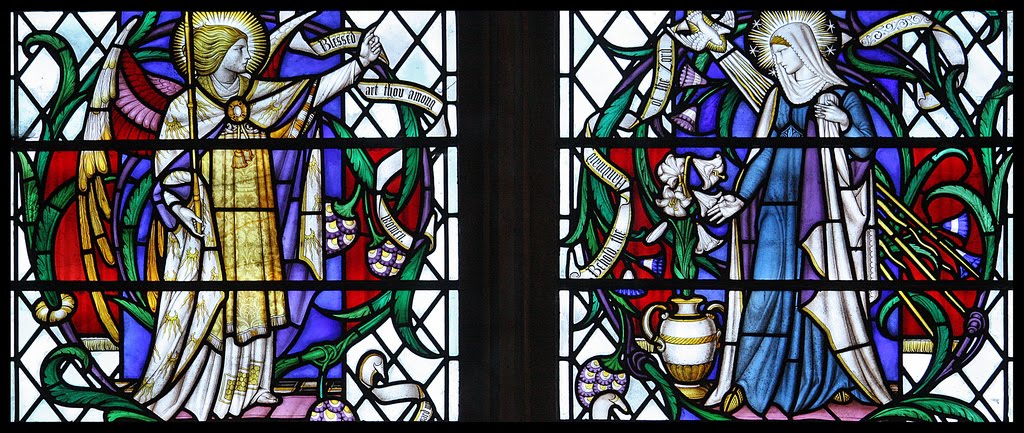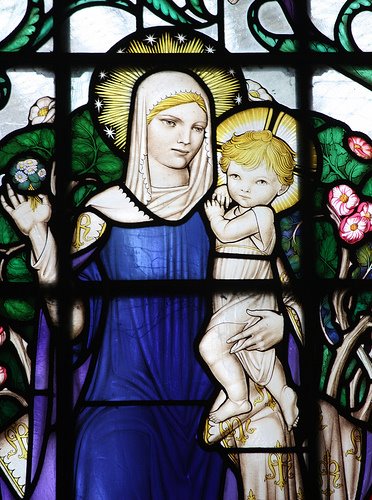Our faith tells us that Jesus Christ, who "is seated at the right hand of the Father", will come to judge the living and the dead. On the other hand, the Gospel of John assures us that Christ was sent "into the world, not to condemn the world, but that the world might be saved through him" (Jn 3:17). In what then does judgment consist? Christ himself gives the answer: "And this is the judgment, that the light has come into the world... But he who does what is true comes into the light, that it may be clearly seen that his deeds have been wrought by God" (Jn 3:19, 21). Recently, the Encyclical Veritatis Splendor also reminded us of this. Is Christ then a judge? Your own actions will judge you in the light of the truth which you know. Fathers and mothers, sons and daughters, will be judged by their actions. Each one of us will be judged according to the Commandments, including those we have discussed in this Letter: the Fourth, Fifth, Sixth and Ninth Commandments. But ultimately everyone will be judged on love, which is the deepest meaning and the summing-up of the Commandments. As Saint John of the Cross wrote: "In the evening of life we shall be judged on love". Christ, the Redeemer and Bridegroom of mankind, "was born for this and came into the world for this, to bear witness to the truth. Everyone who is of truth hears his voice" (cf. Jn 18:37). Christ will be the judge, but in the way that he himself indicated in speaking of the Last Judgment (cf. Mt 25:31-46). His will be a judgment on love, a judgment which will definitively confirm the truth that the Bridegroom was with us, without perhaps our having been aware of it.
The judge is the Bridegroom of the Church and of humanity. This is why he says, in passing his sentence: "Come, O blessed of my Father... for I was hungry and you gave me food, I was thirsty and you gave me drink, I was a stranger and you welcomed me, I was naked and you clothed me" (Mt 25:34-36). This list could of course be lengthened, and countless other problems relevant to married and family life could be added. There we might very well find statements like: "I was an unborn child, and you welcomed me by letting me be born"; "I was an abandoned child, and you became my family"; "I was an orphan, and you adopted me and raised me as one of your own children". Or again: "You helped mothers filled with uncertainty and exposed to wrongful pressure to welcome their unborn child and let it be born"; and "You helped large families and families in difficulty to look after and educate the children God gave them". We could continue with a long and detailed list, including all those kinds of true moral and human good in which love is expressed. This is the great harvest which the Redeemer of the world, to whom the Father has entrusted judgment, will come to reap. It is the harvest of grace and of good works, ripened by the breath of the Bridegroom in the Holy Spirit, who is ever at work in the world and in the Church. For all of this, let us give thanks to the Giver of every good gift.
We also know however that according to the Gospel of Matthew the Final Judgment will contain another list, solemn and terrifying: "Depart from me... for I was hungry and you gave me no food, I was thirsty and you gave me no drink, I was a stranger and you did not welcome me, naked and you did not clothe me" (Mt 25:41-43). To this list also we could add other ways of acting, in which Jesus is present in each case as the one who has been rejected. In this way he would identify with the abandoned wife or husband, or with the child conceived and then rejected: "You did not welcome me"! This judgment is also to be found throughout the history of our families; it is to be found throughout the history of our nations and all humanity. Christ's words, "You did not welcome me", also touch social institutions, governments and international organizations.
~ Pope John Paul II: excerpt from Letter to Families ~


